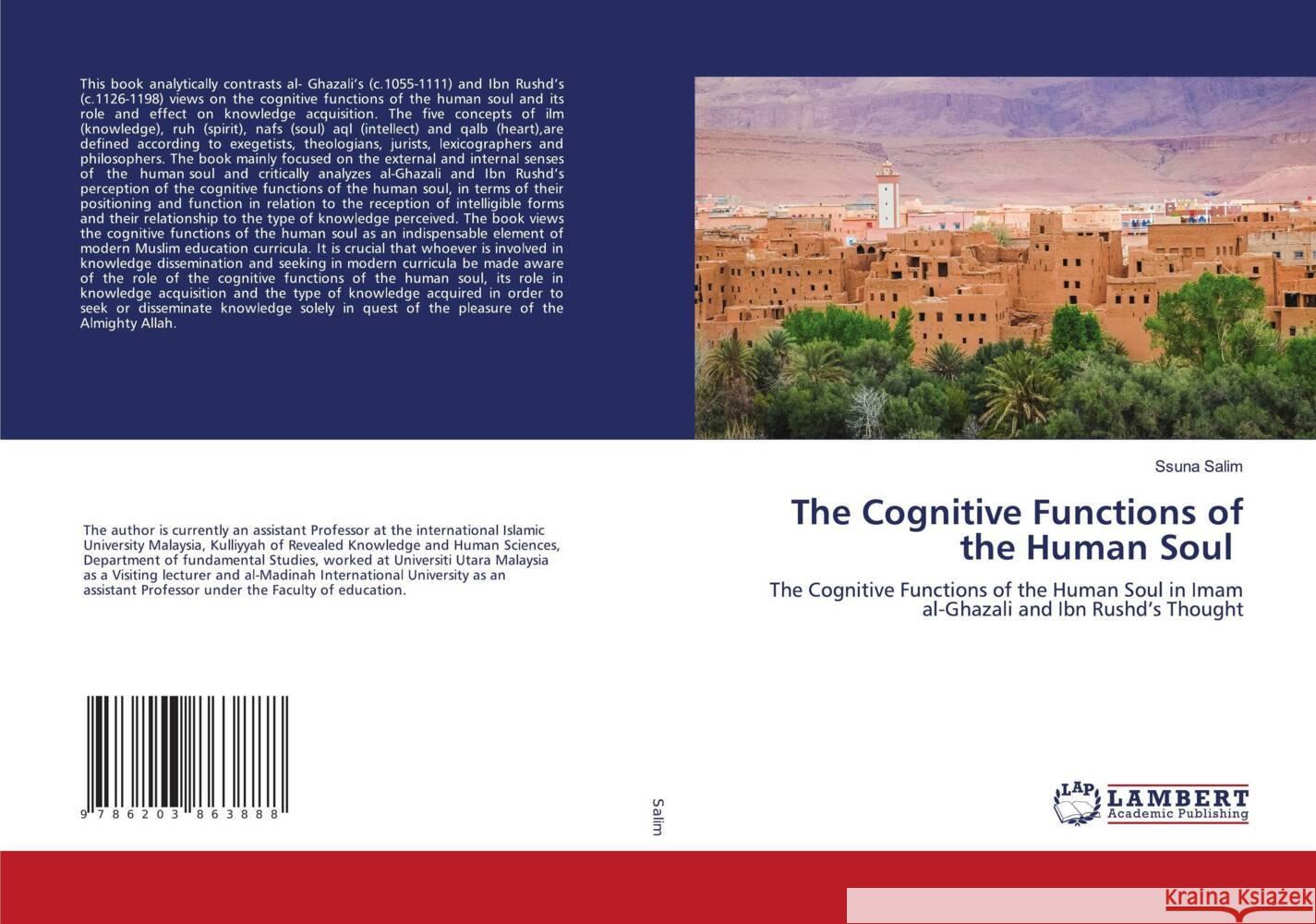The Cognitive Functions of the Human Soul » książka
The Cognitive Functions of the Human Soul
ISBN-13: 9786203863888 / Angielski / Miękka / 288 str.
This book analytically contrasts al- Ghazali's (c.1055-1111) and Ibn Rushd's (c.1126-1198) views on the cognitive functions of the human soul and its role and effect on knowledge acquisition. The five concepts of ilm (knowledge), ruh (spirit), nafs (soul) aql (intellect) and qalb (heart),are defined according to exegetists, theologians, jurists, lexicographers and philosophers. The book mainly focused on the external and internal senses of the human soul and critically analyzes al-Ghazali and Ibn Rushd's perception of the cognitive functions of the human soul, in terms of their positioning and function in relation to the reception of intelligible forms and their relationship to the type of knowledge perceived. The book views the cognitive functions of the human soul as an indispensable element of modern Muslim education curricula. It is crucial that whoever is involved in knowledge dissemination and seeking in modern curricula be made aware of the role of the cognitive functions of the human soul, its role in knowledge acquisition and the type of knowledge acquired in order to seek or disseminate knowledge solely in quest of the pleasure of the Almighty Allah.











